ICJAO Proceedings: Week One
What Happened and Where Do We Go From Here?

The world’s highest court is hearing the world’s biggest problem. Thanks to the Pacific Islands Students Fighting Climate Change (PISFCC), the International Court of Justice (ICJ) is hearing testimony from 109 States and organizations about the climate crisis. PISFCC has campaigned for five years to get the ICJ to issue an advisory opinion on climate change. Oral proceedings finally began last week and will continue through Friday, December 13. Learn more about the ICJ and the advisory opinion process here.
UUSC’s Global Advocacy Strategist Mayuri Anupindi joined PISFCC and other advocacy groups at The Hague. Learn more about what happened so far and where we go from here:

DAY 1: Opening Ceremony

Before the start of the Court proceedings, PISFCC and the World's Youth for Climate Justice (WY4CJ) co-host an opening ceremony for the Hague Mobilisation Taskforce. This task force is comprised of activists and
representatives from international organizations amplifying the people’s demand for a bold advisory opinion on the climate crisis.

DAY 2: ICJ Proceedings Begin
“All rise” inside the Court’s plenary hall as the judges enter the Peace Palace. Meanwhile, the Hague Mobilisation Taskforce stages a demonstration outside. Ralph Regenvanu, Vanuatu's Special Envoy for Climate Change,
opens the oral submissions, stressing
the importance of the Court to ground
climate action not in political
convenience but in international law.
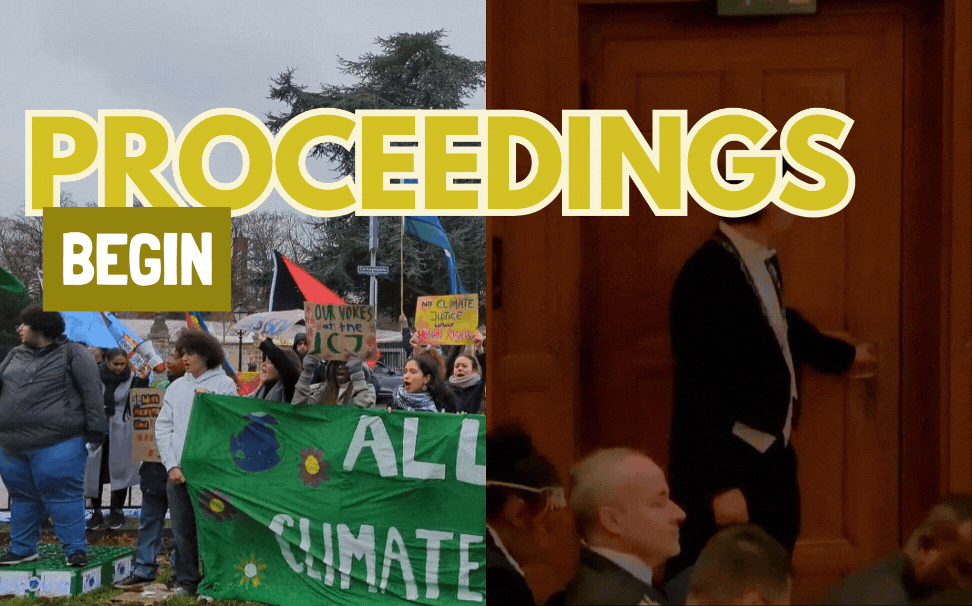

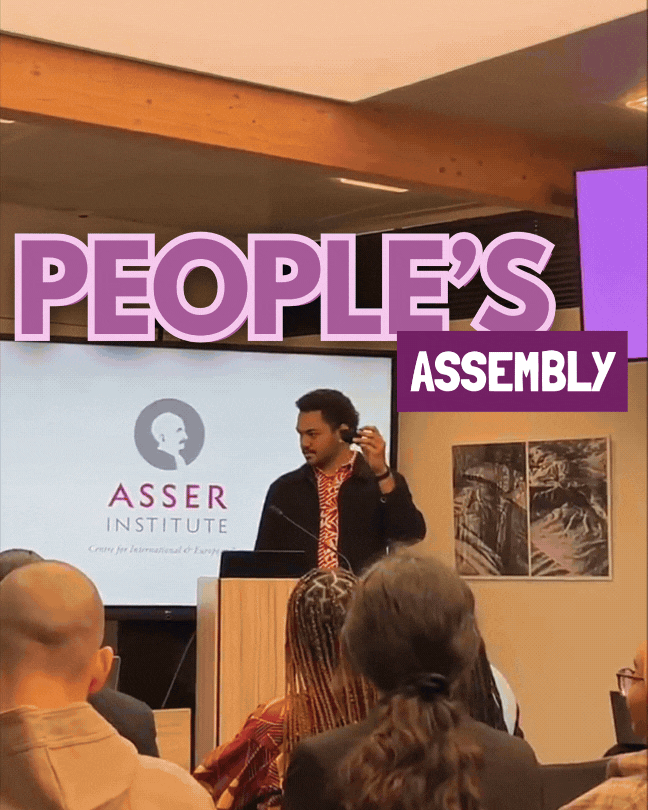
DAY 3: The People’s Assembly
At the same time as Court hearings, a People’s Assembly takes place in Den Haag to convey the testimonies of those most affected by the climate crisis. Due to strict rules, they cannot be individually heard by the ICJ. Campaigner Siosiua Veikune opens the assembly with a kava ceremony, a traditional Fijian ritual.

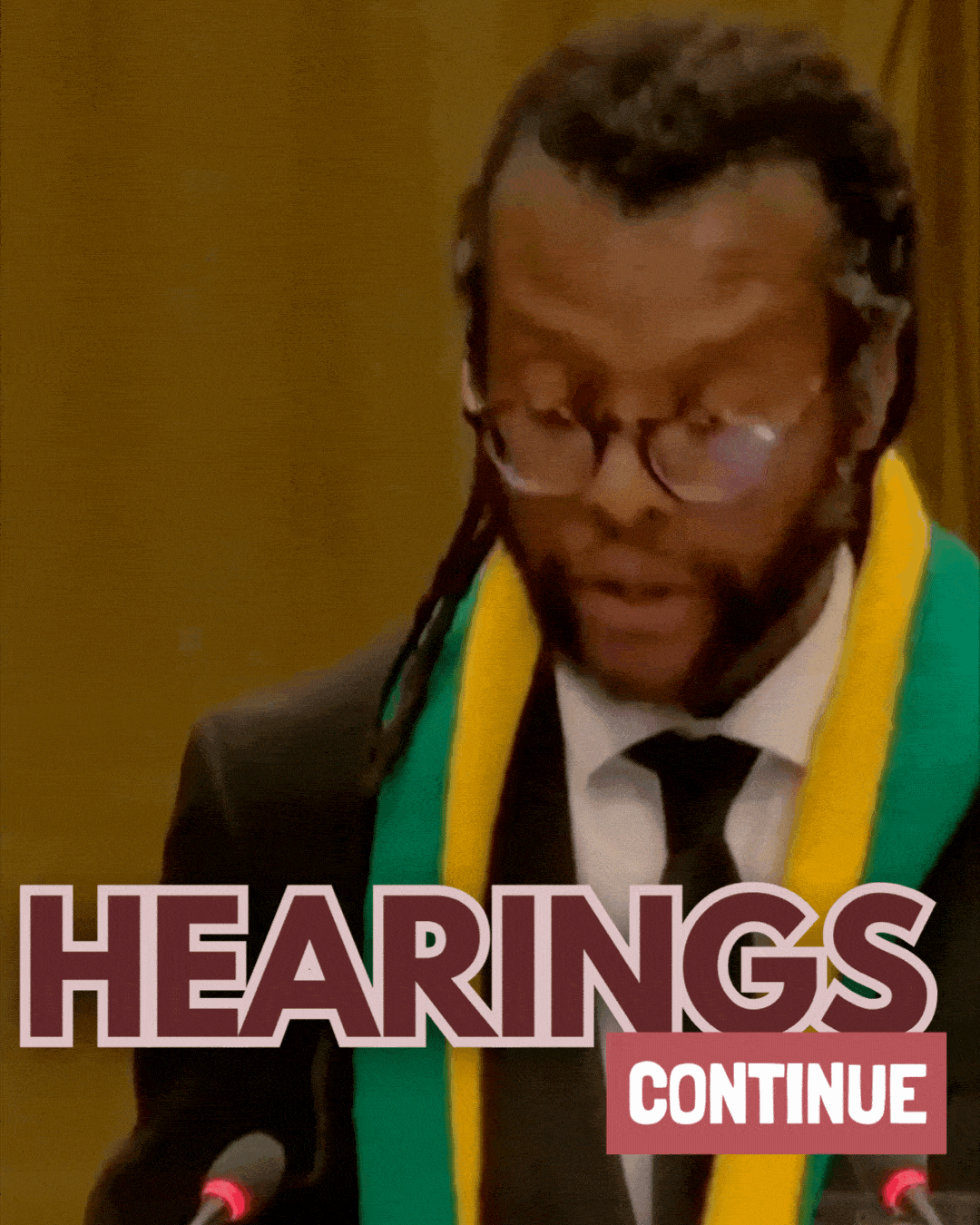
DAY 4: Proceedings continue
Grenada's Justin Sobion argues that judges should recognize States' fiduciary obligation to act as trustees of the climate system on behalf of future generations. He cites jurisprudence as an ancient principle codified in modern International Law instruments.

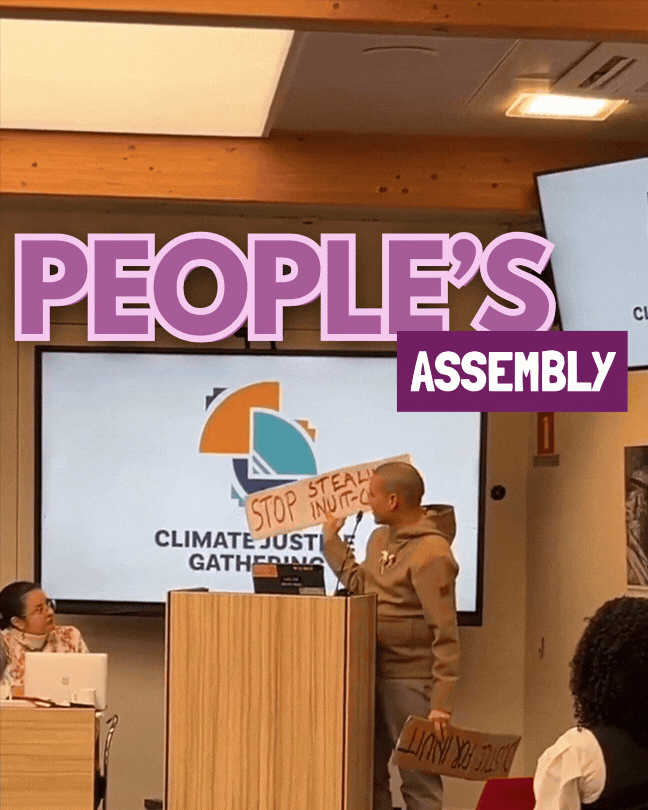
DAY 5: Indigenous Law and Traditional Knowledge at the People’s Assembly
On the last day of the People’s Assembly, Michael Bro from Greenland discusses the relationship between colonialism and climate change. He calls for justice for the Inuit and an end to colonialism and genocide. Koteka Wenda of West Papau, the home of the third largest rainforest, closes out the day. She says, "If you save West Papua, you save the lungs of the world."

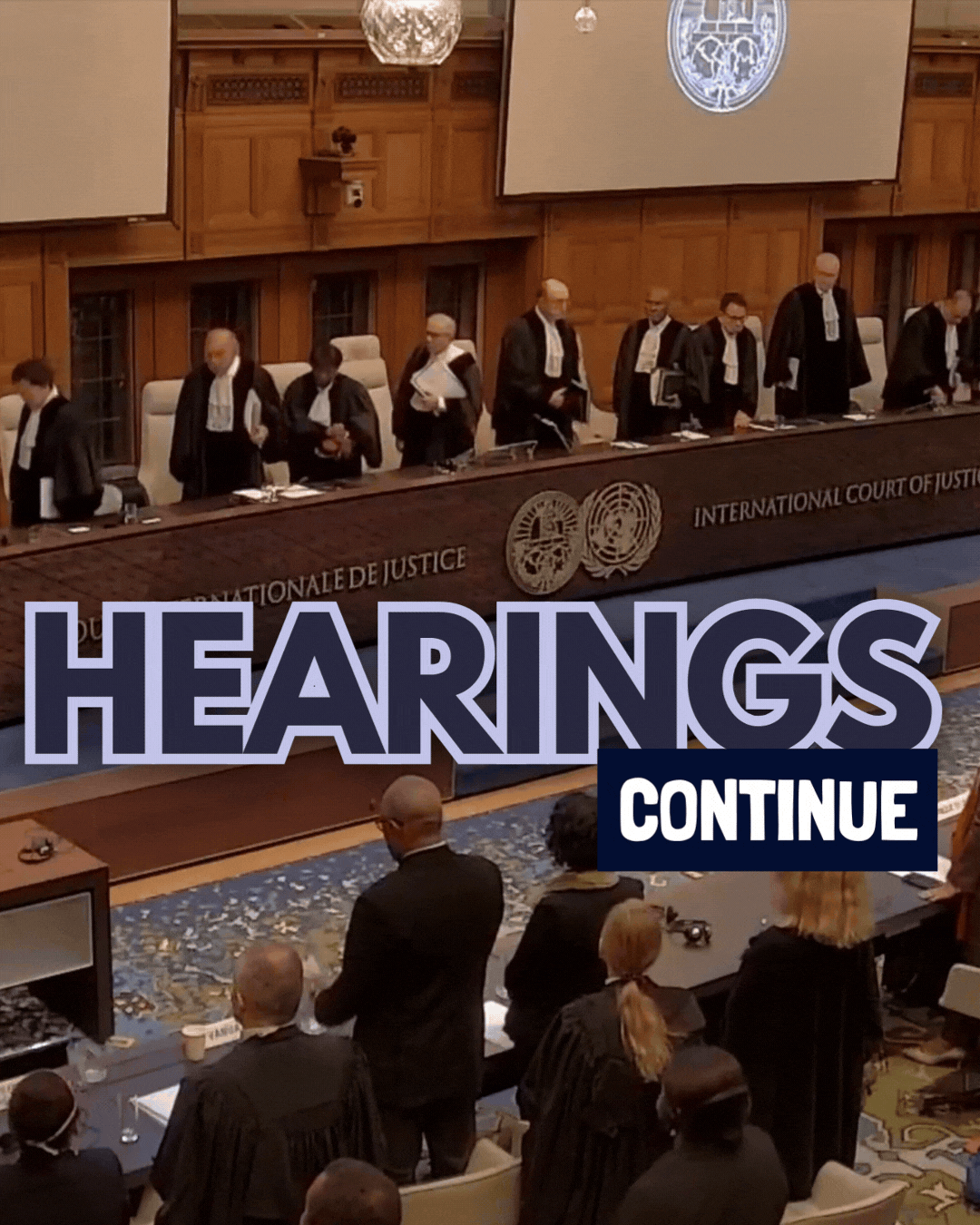
DAY 6: Candlelight Vigil and Tok Stori as Hearings Continue
Activists and organizers hold a candlelight vigil and tok stori, a Melanesian approach to dialogue and narrative building. Proceedings continue as judges hear from Jamaica, Papua New Guinea, Kenya, Kiribati, Kuwait, Latvia, Liechtenstein, Malawi, Maldives, and the African Union. The court then takes a two-day recess.
WHAT’S NEXT?
Following the recess, hearings will continue through December 13. After the conclusion of public proceedings, the court will deliberate for several months before issuing its Advisory Opinion.
Advisory Opinions are non binding, so it will be up to the public to use the ICJ’s opinion to advocate for civic action. The Pacific Islands Students Fighting Climate Change and their peer organizations are ready for this next phase in the struggle toward climate justice.
Created by Unitarian Universalist Service Committee
Gifs by Shay Stewart-Willis
Video credits: Gif 1: Mayuri Anupindi
Gif 2: PISFCC
Gif 3: Anupindi/UN Web TV
Gif 4: PISFCC
Gif 5: UN Web TV
Gif 6: PISFCC
Gif 7: PISFCC/UN Web TV